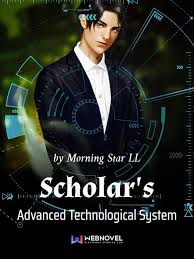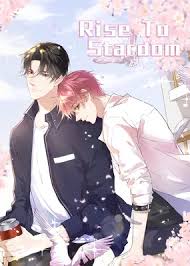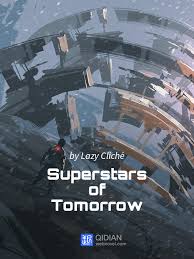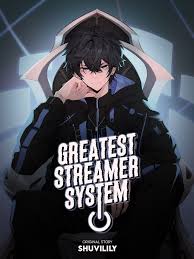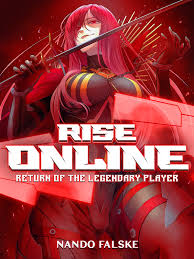The Story in 3 Sentences
A broke university student named Lu Zhou collapses from heatstroke and wakes up with a mysterious “Advanced Technological System” implanted in his mind, forcing him to solve scientific missions for abstract rewards instead of cash.
He rockets from struggling math undergrad to globally revered genius, publishing groundbreaking papers, founding tech empires, and casually brushing shoulders with Nobel laureates as the system pushes him toward reshaping human knowledge itself.
The journey crescendos as his theoretical breakthroughs unlock technologies bordering on science fiction, forcing him to confront the weight of godlike intellect and whether humanity is ready for the future he’s building.
Why It Stands Out
1. The Ultimate Nerd Power Fantasy, Grounded in Real Science
Forget magic swords or dragon bloodlines. This novel’s superpower is raw, credible intellectual achievement. The system doesn’t hand Lu Zhou answers; it forces him to earn them through grueling study and research, mirroring real scientific struggle. Readers vicariously experience the thrill of cracking complex theorems, publishing in top journals, and seeing the world acknowledge their genius. It’s a celebration of the human mind’s potential, making academic triumphs feel as epic as any battlefield victory. The detailed, often accurate, portrayal of mathematics, physics, and engineering processes adds a layer of authenticity rarely seen in the genre, appealing to readers who crave substance with their wish-fulfillment.
2. A Slice-of-Life Comedy Wrapped in a Sci-Fi Epic
Beneath the grand narrative of scientific revolution lies a surprisingly relatable and humorous core. Lu Zhou’s initial desperation over his poverty, his awkward social interactions, and his constant, futile bargaining with the stingy system (“Can points be exchanged for money?” “No.” “F**k, what use are you then!?”) provide consistent comic relief. The novel finds humor in the absurdity of a world-class mind being stressed about tuition fees or baffled by basic social cues. This blend of high-stakes intellectual drama with low-stakes, everyday comedy creates a unique, engaging tone that prevents the story from becoming overly serious or pretentious.
3. A Thought Experiment on Technology’s Societal Shockwaves
The novel transcends simple power progression by exploring the profound societal, economic, and ethical ripples caused by Lu Zhou’s accelerated innovations. It doesn’t just show him inventing things; it shows universities scrambling to adapt, industries collapsing or being born overnight, and global politics shifting in response to his breakthroughs. It asks what happens when technological advancement outpaces societal readiness, making it more than just a personal journey—it’s a commentary on progress itself. This focus on the broader impact gives the story significant thematic weight.
Characters That Leave a Mark
There’s Wu Dahai – Lu Zhou’s loyal, slightly envious, but ultimately supportive senior and roommate at Jin Ling University, whose grounded perspective and comedic reactions often serve as the reader’s anchor to normalcy amidst Lu Zhou’s escalating genius.
You’ll meet Chen Yushan, who starts as a classmate frequently seeking Lu Zhou’s help with math problems and evolves into a shrewd businesswoman and CEO of Star Sky Technology, becoming a crucial partner in commercializing his inventions and navigating the corporate world he often ignores.
And Vera Pulyuy? They’re the one who appears as a brilliant, young international student, often representing the global academic community’s awe and competitive spirit in response to Lu Zhou’s work, adding an international dimension to his rise.
The Flaws Fans Debate
The pacing can feel uneven, with some readers noting a significant slowdown or perceived dip in narrative drive after the 1300-chapter mark, particularly following major plot milestones or time skips.
The protagonist’s emotional intelligence and personal relationships sometimes take a backseat to his intellectual pursuits, leading to criticisms that his character development outside of academia is underexplored or static.
The system’s mechanics, while central to the plot, can feel arbitrary or frustratingly opaque, especially when it denies practical needs like money, which can break immersion for readers seeking more logical world-building.
Must-Experience Arcs
Ch. 1–70: The Jin Ling Prodigy Emerges – Lu Zhou adapts to the system, tackles his first major mathematical proofs, wins national competitions, and establishes his reputation within the university, setting the foundation for everything to come.
Ch. 350–550: The Nobel Ascent – Focused on groundbreaking work in chemistry and physics, this arc sees Lu Zhou collaborating with global experts, receiving prestigious award nominations, and solidifying his status as a contender for the highest scientific honors.
Ch. 1150–1350: Engineering the Future – Shifting from pure theory to applied science, Lu Zhou spearheads revolutionary engineering projects and AI development, confronting the tangible, world-altering consequences of his intellect and the system’s endgame.
Killer Quotes
“System, can points be exchanged for money?” “No.” “F**k, what use are you then!?”
“This system will make you the ultimate scholar, the kind that lords over all of humanity. What use will money be to you?”
Cultural Impact
It’s frequently cited in online forums as the gold standard for “rational” or “hard science” system novels, praised for its attempt at scientific accuracy.
The quote “He advances science like a god!” became a popular meme among fans, summarizing the protagonist’s impact in a single, hyperbolic line.
It sparked discussions across webnovel communities about the potential and pitfalls of integrating real-world science into progression fantasy, influencing a wave of similar, more research-focused stories.
Final Verdict
Start Here If You Want:
To live out the fantasy of becoming an unparalleled academic genius whose work changes the world.
A story that blends laugh-out-loud comedy with genuinely awe-inspiring scientific discovery.
A unique take on the system genre where the “cheat” is relentless intellectual labor, not brute force or luck.
Study If You Love:
Exploring narratives that seriously engage with the process and impact of scientific research and technological innovation.
Characters who achieve godlike status through knowledge and intellect rather than physical power.
Stories that use a fantastical premise (the system) to conduct a realistic thought experiment about societal progress.
Avoid If You Prefer:
Fast-paced, action-driven plots with constant physical conflict.
Protagonists with deep, evolving emotional or romantic storylines as the central focus.
Tightly plotted narratives without any filler or meandering subplots; this is a long, sometimes sprawling journey.
